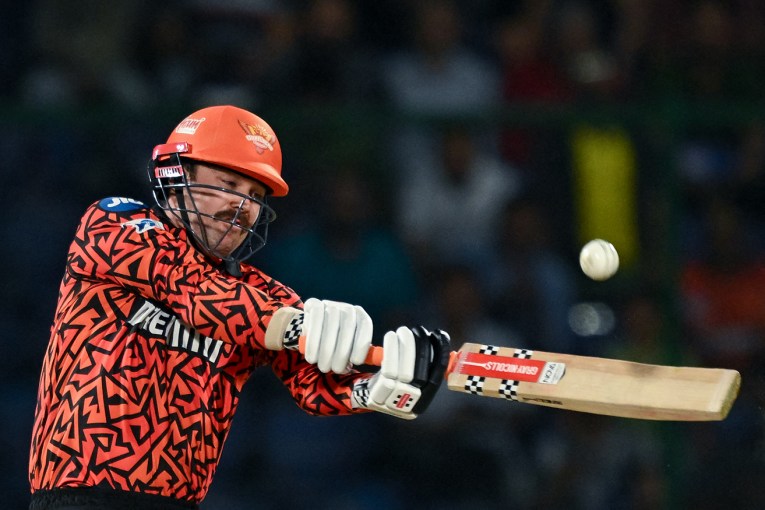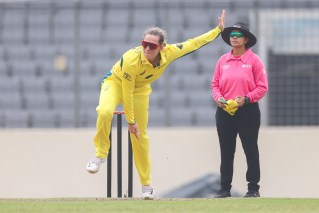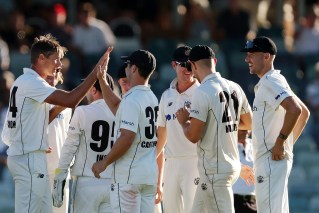Trescothick, Kennett lead chorus of support for Trott
• ‘Stressed’ Trott heading home from Ashes
• Are you okay, man? Why blokes just won’t ask for help
• Rodney Hogg: Why David Warner should shut his trap
• Michael Clarke fined for Gabba outburst
• First Ashes Test: What we learned
Former England batsman Marcus Trescothick, who cut short his England career in 2008 because of a stress-related illness, has come out in support of Jonathan Trott’s decision to quit the Ashes tour for similar reasons.
“That would have been a horrible decision for him to make,” Trescothick said on the BBC. “It’s debilitating. It grinds you down and just gets to you non-stop. There’s no sort of hiding place from it,” he said.
“To come out and talk about these things for the first time is tough. I’m sure he’s not feeling great at all, but he’s definitely made the right decision.”
England all-rounder Stuart Broad pledged support for Trott on Twitter, writing: “Love Trotty. Absolute champion of a man. He knows he has all the support of all the people around him. Puts cricket in perspective.”
Love Trotty. Absolute champion of a man. He knows he has all the support of all the people around him. Puts cricket in perspective
— Stuart Broad (@StuartBroad8) November 25, 2013
Former England captain Nasser Hussain said the news had come as “a real shock”, while another former skipper, Michael Vaughan, expressed regret for questioning Trott’s performances in the media.
“I do feel guilty for criticising Trott this week… I wasn’t to know what he was going through and I can only comment on what I see,” Vaughan wrote on Twitter.
Because it’s an illness that you can’t see, people like to take cheap shots.
Former England captain Andrew Flintoff tweeted: “Trotty will be back. Over the hardest hurdle in his recovery by facing it head on, which is something we are not all able to do.”
Beyond Blue chairman Jeff Kennett has criticised coverage in some Australian newspapers following Trott’s decision to withdraw. Some newspaper headlines were “Trott does a runner” and “Trott takes his bat and ball and heads home”.
“If Jonathan Trott had broken his arm no one would have criticised him or inferred as the paper headlines are doing this morning that he’s taken his bat and ball and gone home,” he told 702 Sydney.
“But because it’s an illness that you can’t see, people like to take cheap shots.
“We should be celebrating the fact that in this day and age, particularly a male, a high profile male, finds that he can declare that he has a stress-related illness and then seek help for it,” he said.
Trott’s departure comes after he was subjected to extraordinary public criticism by Australian batsman David Warner, who said his dismissal in the second innings was “weak” and accused him of “backing away” from rampaging Australian fast bowler Mitchell Johnson.
Trott’s decision to come home early so he can focus on recovering illustrates how sports are dealing better with mental health problems and, in doing so, helping to break down their long-associated stigmas.
Alcohol robbed football of George Best and other players of their skills, health and futures. Cocaine poisoning killed Tour de France champion Marco Pantani in 2004. Four years ago this month, Germany goalkeeper Robert Enke ended his life by stepping in front of a train. His wife, Teresa, said Enke hid his depression because he feared losing everything if it became public.
“There’s been a huge shift,” said Amanda Owens, a sports psychologist who works with cricketers and is a consultant psychologist to the ECB. “Sports people were deemed to be these almost perfect human beings.”
Speaking in a telephone interview, Owens said “it’s a very positive thing for cricket, it’s a positive thing for professional sport” that Trott felt able to leave his teammates in Australia.
For Trott, saying goodbye to his friends when they’re at a low cannot have been easy. England lost the first test by 381 runs, collapsing in both innings. The 32-year-old Trott, who has been such a rock for England in the past, clearly wasn’t himself, out for 10 and 9 to Johnson.
Trott acknowledged as much in the ECB’s statement, saying: “I don’t feel it is right that I’m playing knowing that I’m not 100 per cent and I cannot currently operate at the level I have done in the past.”
The timing could have left Trott open to unkind and ignorant accusations that his courage failed him in the face of aggressive Australian bowling and verbal bullying, that he was leaving his teammates and country in the lurch.
Touring is particularly taxing. Players are away for months on end, far from their kids to cuddle and partners and friends to share thoughts with. For England players, there is no more intense place to visit and compete against than Australia. The weeks away and the long days spent playing cricket also give mentally fragile players ample time to obsess and over-think any problems.
On Tour, “everything is just micro-scoped. It’s such a tough place to be when a) you’re not healthy and b) everyone is analysing everything that you do,” former New Zealand test cricketer Iain O’Brien said in a phone interview. He sought treatment for depression a few years ago after hearing a radio documentary about it.
“Being in the changing room or being away on Tour was one of the hardest parts of my career,” he said. “Because you’re locked in together so tight and I couldn’t handle being around a lot of people.”
Some questioned whether England should have left Trott out of the team, given that coach Andy Flower acknowledged that “Jonathan has been struggling with this condition for quite a while.”
Ultimately, his courage in leaving could prove far more important that anything he might have accomplished had he stayed and suffered in silence.
“One of the first things I did was just search ‘Trott’ on Twitter, to see what the feeling out there was,” O’Brien said. “And I was quite surprised by how much positivity there was.”








